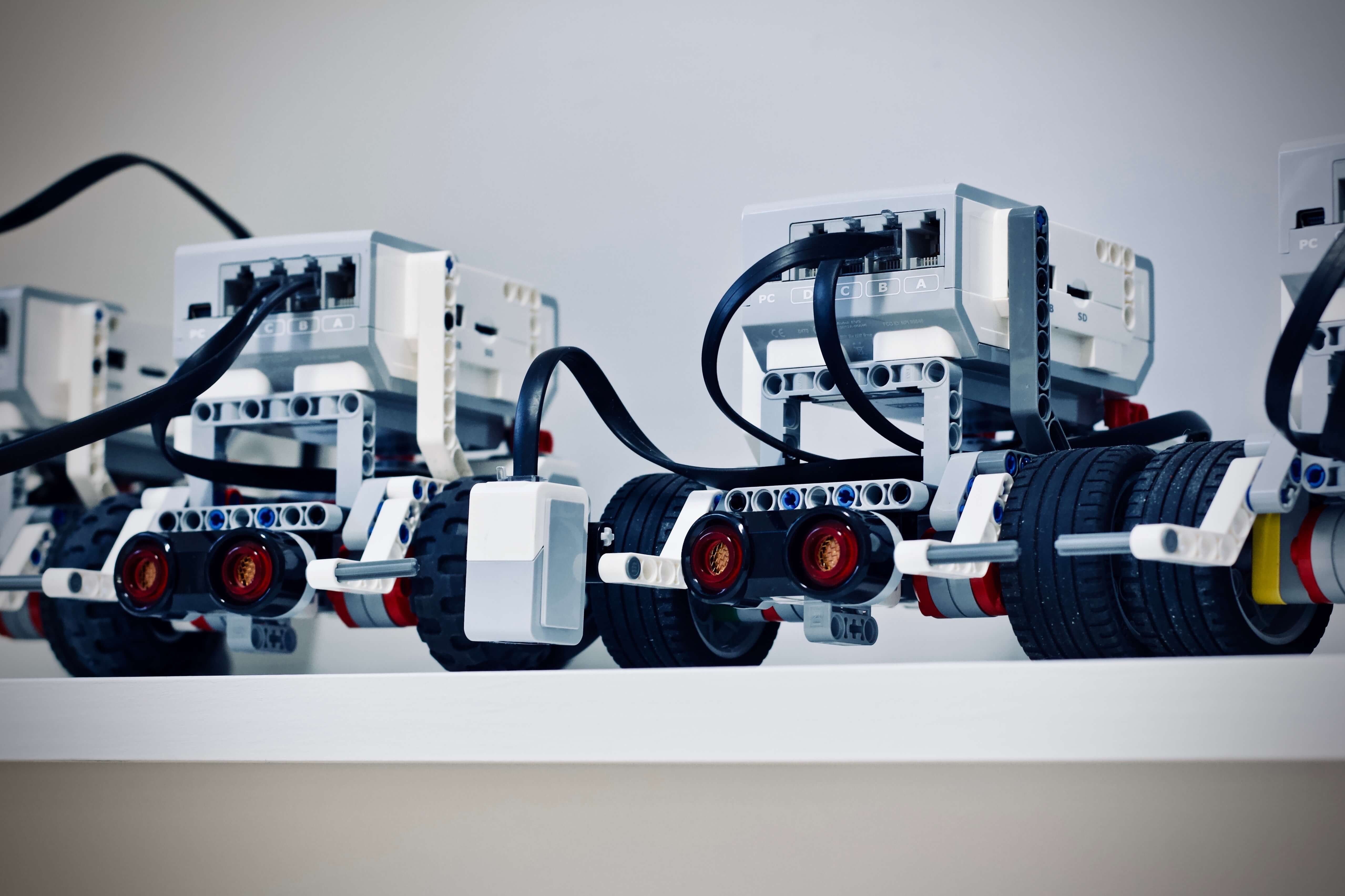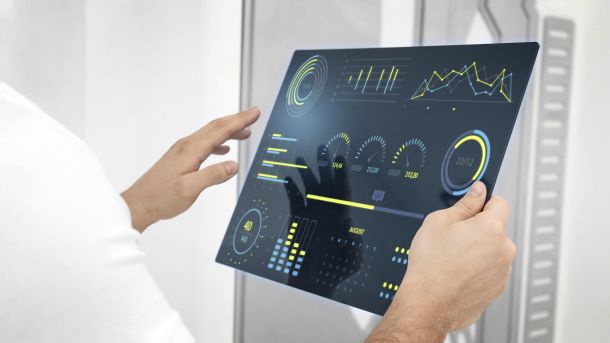- Main
- Solutions
- Inventory control
- Safety Control
- Material management software
- Employee monitoring software
- Time & Attendance tracking system
- Operation Control
- Tool Control
- Machine Control
- Integration with ERP
- Automated inventory managment system
- Team2lean work plan template
- Chat Guru
- Heat Map
- To-do list for workers
- Blog
- About us
- Contact
- Installation Guide

From Smart Factories to Sustainable Practices: Exploring the Latest Manufacturing Trends and Principles
Manufacturing is an essential component of the economy, and it has undergone significant changes in recent years. The Fourth Industrial Revolution has brought about many technological advancements that have transformed the way goods are produced. In this long read, we will discuss the latest manufacturing trends and principles that are shaping the industry today.
Industry 4.0
Industry 4.0 is the fourth industrial revolution, which is based on the integration of physical and digital technologies. This integration has led to the creation of smart factories, where machines are connected and communicate with each other in real-time. This technology has transformed the manufacturing process, making it more efficient and cost-effective. Smart factories allow for the collection and analysis of data, which can be used to optimize production processes and identify areas of improvement.
Additive Manufacturing
Additive manufacturing, also known as 3D printing, is a manufacturing process that involves building objects layer by layer using a digital design. This technology has revolutionized the manufacturing industry by reducing the time and cost of production. 3D printing allows for the production of complex geometries that cannot be achieved using traditional manufacturing methods. This technology has also made it possible to produce customized products in small quantities.
Lean Manufacturing
Lean manufacturing is a production mythology process and philosophy. It focuses on minimizing waste and maximizing efficiency at the same time. This principle aims to eliminate all non-value-added activities in the manufacturing process. This approach has been widely adopted in the manufacturing industry, as it reduces production time and costs while improving product quality.
Robotics
Robots have been used in manufacturing for many years, but recent advancements in technology have made them more sophisticated and versatile. Robots are now used for tasks such as assembly, packaging, and quality control. The use of robots has increased productivity and reduced the risk of injury to workers.

Sustainability
Sustainability is a growing concern in the manufacturing industry. Many companies are adopting sustainable manufacturing practices, which aim to reduce the environmental impact of production processes. These practices include the use of renewable energy, recycling, and the reduction of waste. Sustainable manufacturing not only benefits the environment but also reduces costs and improves brand reputation.
Digital Twin
A digital twin presents a virtual replica of a physical object or system. This technology allows manufacturers to simulate the production process and test different scenarios before implementing them in the real world. Digital twins are used to optimize production processes, reduce downtime and improve product quality.
Internet of Things (IoT)
The Internet of Things (IoT) is the interconnectivity of physical devices and objects through the internet. This technology has transformed the manufacturing industry by enabling the collection and analysis of data in real-time. IoT devices are used to monitor production processes, track inventory and optimize supply chain management.
Augmented Reality
Augmented reality (AR) is a technology that makes it possible to overlay digital information onto the real world. This technology has many applications in the manufacturing industry, including training, maintenance, and quality control. AR allows workers to visualize complex processes and equipment, making it easier to identify and resolve issues.
Big Data
Big data as a rule refers to the collection and analysis of large datasets. This technology has transformed the manufacturing industry by enabling the optimization of production processes and supply chain management. Big data is used to identify trends, predict demand and improve product quality.
Cybersecurity
As manufacturing processes become more connected, cybersecurity has become a growing concern. Cyber-attacks can disrupt production processes, compromise sensitive data, and damage brand reputation. Manufacturers are investing in cybersecurity measures to protect their networks and data.

Conclusion
The manufacturing industry has undergone significant changes in recent years, driven by technological advancements and a growing concern for sustainability. Industry 4.0, additive manufacturing, lean manufacturing. Plus, robotics, sustainability, digital twin, IoT, augmented reality and big data.
What to expect?
In the near future, we can expect to see further advancements in areas such as artificial intelligence (AI) and machine learning, autonomous manufacturing and advanced materials. AI and machine learning will continue to transform the manufacturing industry by enabling machines to learn and improve from experience. This technology will enable manufacturers to optimize production processes, reduce downtime, and improve product quality. AI-powered predictive maintenance systems will become more prevalent, allowing manufacturers to identify and resolve issues before they become major problems.
Autonomous manufacturing is another trend that will shape the future of the manufacturing industry. Autonomous manufacturing systems will enable machines to communicate with each other and make decisions in real-time, without human intervention. This technology will enable manufacturers to reduce labor costs, increase efficiency and improve safety. Autonomous robots and drones will become more prevalent in the manufacturing industry, performing tasks such as material handling, quality control and inspection.

Advanced materials will also play a significant role in the future of the manufacturing industry. New materials such as graphene, carbon fiber, and nanomaterials will enable manufacturers to produce stronger, lighter, and more durable products. 3D printing will continue to revolutionize the manufacturing industry, enabling the production of complex geometries and customized products in small quantities.
Sustainability will remain a key focus for the manufacturing industry in the future. Manufacturers will continue to adopt sustainable practices such as the use of renewable energy, recycling, and the reduction of waste. The circular economy model will become more prevalent, where products are designed to be reused, repaired, or recycled at the end of their lifecycle.
The manufacturing industry is undergoing significant changes, and the future looks promising. AI and machine learning, autonomous manufacturing, and advanced materials are just a few of the trends that will shape the future of the industry. As technology continues to advance and sustainability remains a key focus, we can expect to see further innovations and improvements in the manufacturing industry in the years to come.
At 5controlS, we are at the forefront of the latest manufacturing trends and principles. We are excited to share that our software, which plays a crucial role in enabling these smart factories, is available for FREE. We believe in the power of technology to drive sustainable manufacturing practices, and we want to make this accessible to all.
For more details about our software and to get started, we invite you to visit our GitHub page. Join us in shaping the future of manufacturing. Together, we can make a difference.
-
 02 May 2024
02 May 2024You Do Have A CCTV System, Don't You? Improve Its Efficiency!
-
 17 January 2024
17 January 2024Case Study 1: LOGISTICS
-
 29 May 2023
29 May 2023Machine learning in manufacturing
-
 05 May 2023
05 May 2023Kitting: an essential component in modern manufacturing and supply chain processes
-
 29 April 2023
29 April 20235S and Safety: Ensuring a Safe and Efficient Workplace
-
 21 April 2023
21 April 2023From Smart Factories to Sustainable Practices: Exploring the Latest Manufacturing Trends and Principles
-
 14 April 2023
14 April 2023How to Avoid Losing Millions: The Benefits of Automated Inventory Management
-
 07 April 2023
07 April 2023From Lean Six Sigma to Smart City Success Stories: Applying Quality Management Principles to Urban Planning
-
 29 March 2023
29 March 2023Streamlining Your Supply Chain: The Benefits of Automated Inventory Management
-
 27 March 2023
27 March 2023Manual Inventory Management = Lost Millions: Are You Next?
-
 22 March 2023
22 March 2023Lean Six Sigma and The Specific Cases of Smart Cities
-
 16 March 2023
16 March 2023Six Sigma vs Lean: What's the Difference?
-
 07 March 2023
07 March 2023Having trouble with accurate measurement and analysis?
-
 20 February 2023
20 February 2023Six Big Losses In Lean Manufacturing
-
 20 February 2023
20 February 2023Objectives of Lean Manufacturing
-
 16 February 2023
16 February 2023Overcoming distraction: how Idle Control addresses a common issue
-
 15 February 2023
15 February 2023A true Problem Solver: Machine Control tool for handling complex processes
-
 13 February 2023
13 February 2023Enhance efficiency: discover Staff Control solution
-
 03 February 2023
03 February 2023Installing 5S Control software - Part 2 - Docker
-
 02 February 2023
02 February 2023Installing 5S Control software - Part 1 - Simple network









